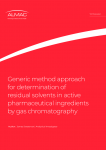EU-Japan extend mutual recognition to biologics and APIs

The announcement builds on a previous agreement, signed in May 2004, which saw both the European Union (EU) and Japan mutually recognise good manufacturing practice (GMP) inspections in each other’s territory.
The new agreement broadens this to contain certain biological medicines, including immunologicals and vaccines, which will no longer need to be inspected once they have been delivered to the other’s territory.
Beyond this, it also includes chemical pharmaceuticals, homeopathic medicinal products, vitamins, minerals and herbal medicines. Any active pharmaceutical ingredients and sterile products that are included in any of these treatments will also not need to be inspected.
The European Medicines Agency (EMA) explained the advantages of the deal in a statement: “Thanks to this agreement, regulatory authorities in the EU and Japan can make better use of their inspections resources by reducing duplication of inspections in each other’s territory.”
Mutual recognition is a growing trend across different nations, as the benefits of not having to replicate inspection reports ease the burden both for regulators, as referenced by the EMA statement, but also for the industry.
The US, for example, has been particularly keen to extend its mutual agreements with the EU.
The announcement by the EMA comes only a day after the EU and Japan concluded its 25th summit. The meeting saw the two countries enter a significant free trade deal between two of the largest economic regions in the world.



















